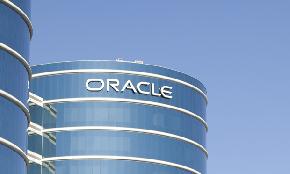The hospitality sector is rushing to jump into green building, years behind other commercial real estate sectors such as office towers or retail. But hotel operators are finding that using solar panels, computerized air conditioning and heating systems, intense recycling, reduced water usage and cutting-edge energy-saving architectural designs proves going green can end up black on owner’s books.
“There’s no question we’re not leaders in that (green) business, but I think we’re slowly coming around that way,” says John Fox of PKF Consulting in New York City, a hospitality research and consulting firm. “All major chains have started green programs and are looking at this area with a level of consciousness never heard of before.”
For hotels, green means more than sustainable building materials, water-saving fixtures, programmable heating and air conditioning for each area of a hotel on an as-needed basis, or unique atrium designs that rely on passive light for heating, illumination and air flow.It’s also a strong reaction to an educated consumer now insisting on environmentally sensitive hotels, and, surprisingly, it’s the seasoned corporate traveler as well as a younger, environmentally conscious generation of travelers that are demanding green accommodations, say operators, architects and analysts.
Many hotels have undergone major renovations to turn green; but for new development the unanswered denominator is the premium in building to green specifications versus the payoff in energy savings down the road. The US Green Building Council has specific guidelines for hotels to earn the commonly known Leadership in Energy and Environmental Design (LEED) certification. The program can also qualify developers for federal tax credits, and states are also now giving tax credits and other incentives for hotels to become environmentally sound. “We are seeing a rush of interest in green hotels, a drastic change just within the last nine months,” says Marc Heisterkamp, manager of corporate and investment real estate for the council.
Much of the activity is in renovations and management operations. Whether renovating an existing hotel with green initiatives and materials, or building from ground up, experts from The American Hotel & Lodging Association and hospitality architects are finding that a far more sophisticated traveler is now seeking out green hotels. “Major clients are now asking questions on green issues before booking, showing how much they care. Corporate travel in part is pushing this. Senior executives are much more sophisticated and showing much more interest in worker accountability and social responsibility,” says Heisterkamp. “They want to show clients a sense of community goodwill by selecting green hotels while spreading the same word to others in their organization.” Major clients are pressing hoteliers on these questions, driving home that they care about these issues, he says.
In the past, owners and management have resisted the move to environmentally friendly properties, but Ernst & Young’s 2008 lodging forecast cites “increased focus on the environment and climate change in the past few years” as a force driving developers, operators and guests for change. The resistance in the past has been fear of construction premiums for new technologies and materials when retrofitting existing properties or developing ground-up. The E&Y report shows that a few years ago the hospitality industry was seeing construction premiums of 20 % to build green, while some hotel companies insisting construction costs approach 30% to meet green standards. In its 2008 forecast, E&Y says Green Building Council statistics show the extra cost has dropped to 2% to 7%. The reports states that the initial increased construction costs are usually recaptured in one to two years.
An example of older properties going green is the $100 million renovation of the 501-room Hyatt Regency Bonaventure Conference Center and Spa in Weston, FL, a sprawling 23-acre, multi-building property. The site is 25 years old, and has flown nearly a dozen different flags in that time. Hyatt took over management in 2006 and coordinated the implementation of green renovation with its owner, says Hyatt Bonaventure director of marketing and sales Kelly Commerford.
The company officials devised a master plan following guidelines from the Green Building Council, the Green Hotel Association and the Florida Green Lodging Program, a Florida Department of Environmental Protection program that awards tax credits and recognition to top green development in the hospitality sector. Bonaventure is set to receive the state’s top award in green technology initiatives. “This is a time of change for the hospitality industry, and as a company, Hyatt is committed to sustainable business practices,” says Fred Euler, the hotel’s general manager, in a written statement. “We felt it was our responsibility to be proactive, so we established…the hotel’s eco-friendly program. We are eagerly awaiting the results of our audit from the state, so we can officially announce our certification.”
One of the many energy saving devices is computerized heating and air conditioning. “We’ve got state of the art (HVAC) controls for any single room,” says Commerford. “The system can automatically turn on to cool a meeting room an hour before arrival of the first function and shut down 45 minutes after. Normally you’d rely on the hotel’s chief engineer to run from room to room dealing with complaints, too-hot, too-cold, or the systems would run constantly, sometimes freezing, blasting out the guests. Now the engineers can just go home at night.” The hotel opened in early 2007 but Commerford said that they achieved a 35% reduction in energy savings. After a full year of operations, he expects savings to be a 48% to 50% reduction.
Thomoson, Ventulett, Stainback & Associates, also known as TVS, is a hospitality consulting, design and architectural firm and member of the Green Hotel Association. Scott Sickeler, a leading design principal with the Atlanta firm, says due to confidentiality agreements he can not speak to specific project,s but that nearly every one he has recently been working with is seeking sustainability, green certification and many the top crown, LEED certification. That wasn’t the case in the past. He agrees the phenomena is consumer driven, but that in the present economy, hoteliers really have little choice other than green technologies to reduce operational costs.
Helen Hatch, also a principal with TVS, says in the past she didn’t initially see a “big shift among hotel owners and operators toward green design…The hospitality clients are not often coming to us requesting a LEED certified hotel, as many of our office and institutional clients.”But we are close to a tipping point in sustainable design and I think hotel guests will really want the hotels where they stay to be sustainable-designed, built and managed. It won’t take long. Once it happens, you will see a tremendous change in the industry,” she says.
The rush to green may be on but the industry has had its pioneers. The best example may be the Crowne Plaza Cabana Palo Alto, which when built in 1999, installed a solar-panel electrical generating roof that covered nearly all of the facilities electrical costs, says Andrew Kidde, the Cabana’s regional director of sales. “Our owners (BPR Hotels & Resorts LLC) are mechanical engineers and were ahead of the times,” says Kidde. “We’ve been green for 12 years.”





 Copyright © 2024 ALM Global, LLC. All Rights Reserved.
Copyright © 2024 ALM Global, LLC. All Rights Reserved.










